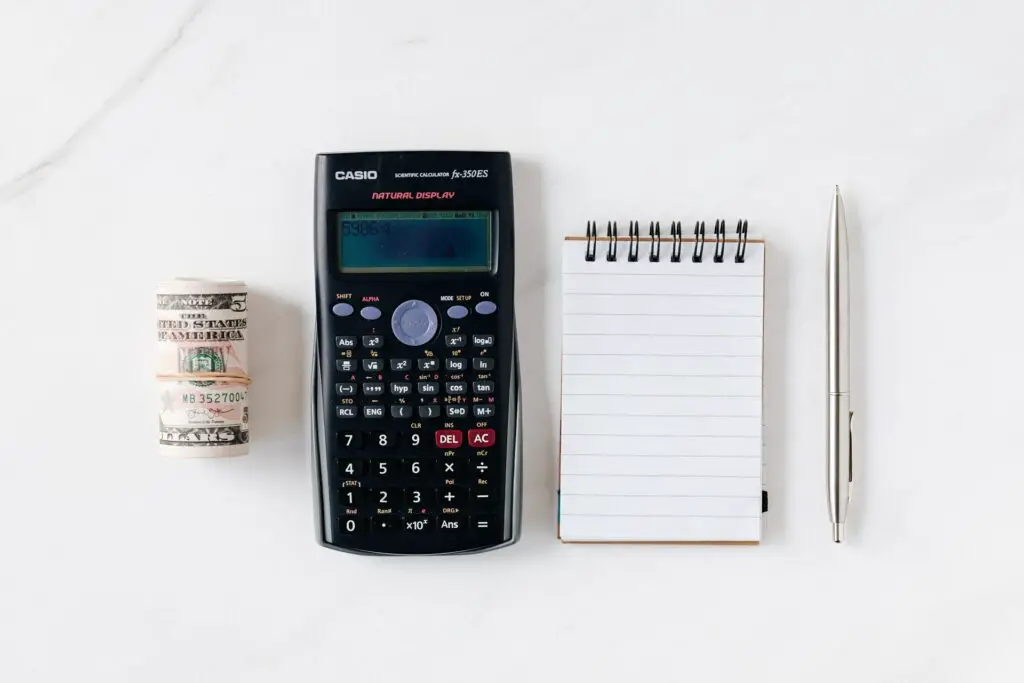A personal budget is essential to control your money and not let your money control your emotions and happiness. It helps you to balance your income and spending with your needs. With a budget, you feel secure about your long-term financial goals.
You want a personal budget if you live as a single or widow/widower. Some couples also chose to keep their finances separate, keeping two personal budgets.
Another option to have a personal budget is as part of a larger budget, for example in a family budget kids can have personal budgets. Their income may be an allowance and they make a plan how they spend their money for clothes, club memberships, or entertainment.
Personal budget vs. family budget
As mentioned, the scope of a personal budget is just one individual, while a family budget covers all family members.

The budgeting process is the same for both. However, the personal budget is the cleanest, because all income is related to just one person. Further, all financial goals are about that one individuum. This makes it much simpler to make decisions. Accountability for spending only within the planned limits falls to a single person as well.
A family budget is often planned by two or more adults. They need to agree on which jobs to take and which income to achieve. They further need to agree on levels of spending or how frugal they want to be. Last but not least they need to agree on common financial goals and the levels at which money needs to be saved.
If there are kids or other dependents part of the family, the plan becomes even more complex. A single person has only to worry about their own retirement. A couple has to worry about their joint retirement. However, with children, there are potential costs for school and college to be taken into account. Such costs are not so easy to plan for, because you don’t know if your children will choose that path.
Teaching a child personal budgeting
When you have children, you worry about their education. Many parents spend easily on toys and learning programs to benefit their children. In a typical middle-class family, children are well taken care of. Most children are shielded from the budgeting process of their parents. They experience a life where money is available most of the time if you ask. This relative affluence leads to children hardly learning how to manage money.
I suggest you can teach your children about budgeting. Most families give their children early on an allowance, which they can spend freely. If you teach your children, to document their income and expenses in a little book and to hold money in a small cash register, they will learn the basic skills to keep a budget.
You can further discuss financial goals, such as larger toys or spending money while traveling. Setting these goals can teach them about how delayed gratification works. Keeping these things documented in the little book helps to focus on one goal for longer and to experience how you get closer to it over time.
Budgeting skills to master
Mastery of budgeting requires certain skills. Let’s discuss the most important ones.
Consistency
The best personal budget plan will fall apart if you are not consistent in your goals and spending behavior. Even a constant income will depend on you consistently showing up.
Changing your savings goals every month is the best way to fail in budgeting.
Discipline
That budgeting requires discipline is obvious. You need to be disciplined in data collection to track your actuals vs planned numbers
Further, you need to be disciplined to spend only the amounts you planned for each category. If you just spend everything on the credit card and only later worry about how you go to pay that huge bill you will fail. You need to be aware that you budgeted only so much for dining out and stop eating out, once that limit is reached for the month.
Patience
Setting financial goals and reaching them is about patience. It is the principle of delayed gratification, that requires you to be patient until you can afford the expense you wish to make.
The bigger financial goals, such as financial independence or a comfortable retirement, require consistency and patience until they can be reached.
Simple math
The math you need for budgeting is rather simple. You need to be able to add and subtract. In order to assess a budget’s fitness, you need to calculate simple percentages.
If you want to calculate the contributions of investments to your financial goals, you also need formulas for compound interest. These formulas you also want to include when calculating the true cost of purchases on credit.
Courage to make changes
True budgeting also needs courage. Especially if you are in a situation, where your budget assessment is not great. If your current spending habits do not allow you to save for your goals, then you need to have the courage to make changes.
If there is a big difference, you need to make changes to your major committed expenses. The kind of things you must pay, such as rent, mortgage, and loans. Such change might mean, you sell that new car you can’t afford, or move to a smaller, cheaper place.
You also need to have the courage to change your habits. You might have to stop dining out every night or stop practicing an expensive hobby.
Willingness to learn
Personal budgeting is a process, so you will be confronted with new situations from time to time. As life changes, so change the items on your budget plan. You may start out with a single job income and not rent living at home. You may add your own rent and savings for major travel.
A committed relationship or marriage will require you to learn how to jointly plan goals and expenses. You will further need to learn how you hold each other accountable for overspending without jeopardizing your relationship.
Having children will add the numerous expenses for their well-being and major savings goals, such as their college funds or weddings.
Retirement has its own challenges. Now you have to face living on a fixed income. You may not be willing or able to take on a second job to increase income.
You see, that budgeting needs to adopt, as life changes. Although one thing stays the same If your expenses are greater than your income you are heading for financial trouble.

Common questions
What are the uses of personal budgeting?
It may seem silly to write down every expense and every contribution to savings. This might especially seem unnecessary busy work to someone that is “good” with money.
However, many successful people even work with a financial advisor to make this documentation and have someone that helps them assess their plan. They also use that advisor to hold them accountable for their deviation from the plan.
At the end of the day, life is too long to easily oversee the future, and having a plan lets you spend the allocated money with peace of mind. Having no plan lets you either always worry if should indulge in that expensive experience or you will wake in retirement with not enough money and regret your actions.
What are important advantages of budgeting?
With a budget just for your personal income you know which purchases you can afford and which ones, you should save up for. It gives you peace of mind in your everyday life. You simply worry once in a while about money, instead of with every expense.
It also gives you a platform to make what-if simulations. If you are used to a budget and you decide to change your life, then you know you have the discipline to make the necessary changes. Let’s say you want to move to a different state because your doctor recommended it would be better for your health. With a personal budget, you know what you are spending money on and can replace the line items with those values for the new location. Just fill in estimates for income, housing, transportation, food and see how it balances out.
Last but not least, your personal budget can tell you what costs you can cut if you have a loss of income. It can also tell you how long your emergency fund will last. Because you know from your budget which expenses must be paid and which can be cut short term or delayed until income is restored.
Why is budgeting an important life skill for students?
Most college students are single, so in their day-to-day life, they need a personal budget. For students, budgeting is essential because college is a major investment in education.
Many students take out student loans to finance their education. So every incremental dollar spent needs to be borrowed and paid back with interest. Living frugally to minimize student loans must be a priority.
Drawing up a budget for college is also an exercise in project budgeting. Because a college education is not an ongoing concern but has a finite end date. Further, all the costs can be estimated upfront. With a college project budget, you can compare the affordability of each college option. You can further decide if living at home while attending college is right for you.
Why do I need a personal budget?
The importance of a personal budget can be compared to a navigation system. It helps you see where you spend money and how much you save for a rainy day. A personal budget is important to navigate every turn of your financial journey. It helps you to know when you will reach your financial goals.
Money can not buy happiness, but it reflects on all our moments in life. It is designed as the universal exchange of labor into consumption. Money is very convenient because we can accumulate money for larger goals, even store it for when we need it. However, the accumulation of money does not happen on its own. It needs a deliberate plan to set financial goals and to consistently and patiently save to achieve those goals.
The importance of a personal budget can not be stressed enough. It may be a bit of work, but it does take out the stress from your life and can so make you happy.